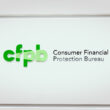When we talk sales, we often talk about closing the deal. But when it comes to used cars, it’s about a lot more than that. It’s about the entire experience you are providing for your customer from the moment they contact the dealership until they drive away in a vehicle you sold them.
“It’s all about real connection,” Kristen Olson, sales manager at Wheels and Deals in Boise, Idaho told us. “If we don’t provide a positive, unique experience, we don’t close deals.”
How do you get from first contact to a closed deal? Here are ten of our best tips.
1. Get Personal
First, get personal. Learn the customer’s name, use it in conversation, and ask appropriate questions that open the door to more meaningful conversations, should they be open to it. By the same token, don’t pry or be nosy, and share information about yourself when appropriate.
This keeps the buyer from feeling like a number or a conquest of some kind. They should feel like you are their friend when they leave. Remember, a customer doesn’t just buy one used car in their lifetime, and they could come back to you over and over whenever they need a new vehicle.
2. Be Professional
While it is important to get personal, you also need to be professional. Pay attention to the way you dress, even if it’s in business casual or your dealership has a uniform. Pay attention to your personal hygiene and appearance.
Simple things like combing your hair, brushing your teeth after that hot-wing lunch, and taking care of your nails, and washing your hands, all say a lot. It also gives you confidence when you approach someone new, and that makes a huge difference when it comes to closing the sale.
3. Stop the Upsell
One of the jokes about used car salesmen is that they are always trying to sell you something you can’t really afford. Stop the upsell. Ask the customer what they are looking for, and in what price range, and just show them those things.
“Trying to upsell a customer, especially our typical clientele, only makes them trust us less,” Mitch Alexander, sales trainer for Dave Smith Motors says. “The only person who can change their mind about what they can afford is the customer.”
Being pushy and too salesy can destroy that rapport you spend so much energy building with them from the start.
4. Use BANT
When it comes to qualifying leads, there is a proven sales formula, and selling used cars is no exception. The initials are BANT and they stand for: budget, authority, need, timeline.
To qualify a lead, ask yourself these questions: Can the customer afford to purchase one of your vehicles? Are you speaking with the decision maker? What are the true needs of the customer? What is the timeframe?
“BANT is at the foundation of our sales training,” says Will Allen of Driven. “If you are not listening to your customer, there are certainly other dealers right down the street who will.”
Following these rules makes sure you’re not wasting your customer’s time, and they’re not wasting yours.
5. Know Your Stuff
You should know your inventory and have information about all your vehicles as much as that is possible. If you don’t know something, go find out. Don’t bluff your way through it. If a vehicle has just arrived, get to know all you can about it. These things include:
Part of being a professional is being an expert on the cars you’re selling.
6. Know Your Competition
Compare your inventory with others when you are not busy with customers. If they ask about the Chevy at the dealer down the street, you can have a ready answer about why that vehicle might be cheaper, more expensive, or not as comparable.
Remember, the more knowledgeable and honest you are, the more likely you are to make the sale. If you genuinely don’t know the answer the customer is looking for, ask for a few moments to do some research. If you don’t, your competition will.
7. Never Pre-Judge
Regardless of how anyone is dressed or your other perceptions of them, never pre-judge someone who walks on the lot. The guy in the ripped-up jeans and old jacket could be a doctor on vacation who wants to pay cash for a vehicle you have that no one else does. On the flip side, the guy in the suit and tie could be looking for a sub-prime loan your dealer may offer.
Never assume. Ask the same questions, greet each customer with a smile, and treat them as if they are the only ones that matter at that moment.
8. Talk Honestly about Financing
Nothing is worse than getting down to the end of the deal and not being able to close on financing. Talk money from the start, and be honest about options, down payments, interest rates, and payment plans. It’s better to know where your buyer is coming from as soon as possible when you are looking to close a deal.
9. Go Digital
People are buying everything online, including cars. Have a digital presence, website, and social media. List your vehicles on local marketplaces and respond to messages and comments in a timely manner. Make the financing application process as painless as possible.
“Dave Smith was one of the pioneers of online buying,” Alexander told us. “And it turned us from a small-town dealership into something really special.”
Customers expect convenience, and one sure way to close the sale is to have the customer ready to buy and even have their financing approved before they ever set foot on your property. Digital marketing and a great website can do that for you.
10. Follow Up
Gather email addresses. Follow up with your potential customers before the sale. Follow up after the sale to ensure they are happy and will return to your dealership when they need another vehicle. Ask for honest reviews of your business and respond positively to feedback.
Even if the potential buyer does not buy from you this time, you may be able to learn from what they liked and did not like about your business, and the reason they chose another direction. You can set yourself up to be their first choice next time.
“It’s about developing lifetime customers,” Kristen Olson told us. “It’s not like customers are only going to buy one used car and never buy another one.”
This is far from a comprehensive list, and as we all know, selling takes time, effort, and energy. These 10 points can help set you up for success by forming lasting relationships with your customers.









